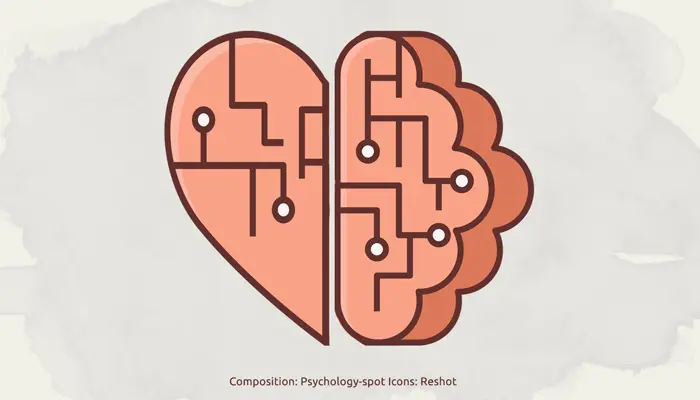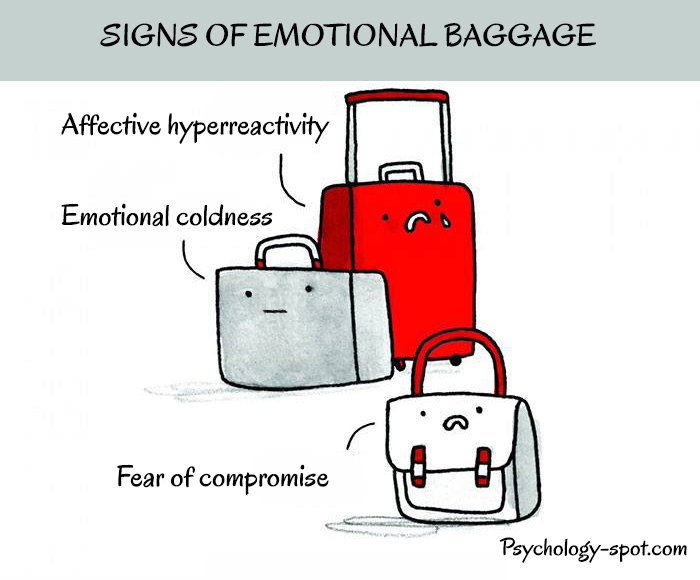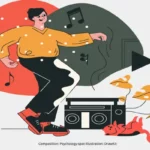
We all carry emotional baggage. But each person has his own bags. There are those who carry several huge suitcases full of frustration, bitterness or resentment and there are those who only travel with a small backpack.
Of course, it is not easy to get very far when we have to drag such heavy luggage. That doesn’t mean we can’t do great things, but it will probably take us twice or three times the effort of a lighter traveler.
What is emotional baggage exactly?
Emotional baggage refers to all those conflicts, unresolved traumas or negative experiences from the past that remain latent and continue to have an impact on your well-being and even on your way of thinking, the decisions you make and your behaviors.
Obviously, we all carry an emotional suitcase. We have all had conflicting relationships or have suffered the blows of life. We have been rejected, we have stumbled, we have fallen, and we have been hurt.
Emotional baggage is not necessarily a negative thing. We have all lived painful experiences that leave a mark and which we cannot forget. Being alive also means carrying those experiences from the past and, to a certain extent, it is necessary not to forget them because they help us not to make the same mistakes, be more cautious or even value more what we have achieved.
However, the problem begins when that baggage becomes too heavy and prevents us from moving forward, becoming an obstacle to our lives. The problem appears when we cannot free ourselves from its emotional impact and allow it to rule our lives and decisions. The problem, therefore, is not the emotional baggage, but our inability to lighten it.
How do we fill our emotional suitcase?
Our suitcase is usually filled little by little, without realizing it, so that if we do not take care of eliminating emotional garbage from time to time, at some point it will become an obstacle.
Growing up in a dysfunctional family, for example, often means carrying deep emotional wounds from a traumatic childhood. However, even if we have grown up in a functional family, the fears, insecurities and anxieties of our parents can be part of an emotional inheritance that we carry without realizing it.
Friendship or partner relationships can also leave emotional wounds that are difficult to heal, especially if we have felt betrayed, abandoned, humiliated or belittled precisely by that person who should be a source of support and affection.
Of course, life experiences that trigger psychological trauma can also be part of our emotional suitcase. An unresolved mourning, an accident with consequences or having been victims of bullying are situations that can mark us.
The 3 warning signs that indicate that our emotional baggage hinders us
Detecting emotional baggage is usually not easy as people often get so used to its weight that they are not aware of its existence. However, there are some signs that indicate that we are carrying some problems from the past that we should get over once and for all:

1. Emotional coldness. People who have been betrayed or hurt in the past often develop a protective shell to prevent them from being hurt again. That armor unfolds in the form of emotional detachment. However, although building walls can protect us, it also prevents us from establishing deeper emotional bonds and, therefore, limits our ability to enjoy and share with others or even maintain lasting relationships. If you’ve been told that you’re “too closed,” it’s probably a sign that you need to get rid of some of your emotional baggage.
2. Fear of commitment. If we have a hard time committing to someone, it is probably due to some negative experience from the past that we keep dragging in our emotional suitcase. If we have developed an avoidant attachment style because our parents were emotionally unavailable or did not adequately meet our needs, we are likely to distrust others and reject their support. That will also prevent us from establishing commitments and taking root since, deep down, we are afraid of being abandoned. If we believe that no one is trustworthy enough, we will end up sabotaging our relationships before they even start.
3. Emotional hyperreactivity. The contents that we carry in our emotional baggage influence our reactions and decisions without us realizing it. They infiltrate practically all spheres of our lives. For that reason, they often express themselves through overreactions to circumstances that don’t bother other people. This is because we are projecting the negative experiences of the past into the present moment, reacting more to what has happened to us than to what is happening. In fact, if you’re made aware that you often overreact, you may have to delve into your emotional backpack to find the cause.
The consequences of dragging problems from the past
Carrying a heavy emotional suitcase is not only arduous and exhausting, but its negative consequences are undeniable. In addition to having a devastating effect on relationships, it also prevents us from opening ourselves to new experiences and, therefore, hampers our growth and happiness.
A study conducted at North-Trøndelag University College revealed that carrying around emotional baggage prevents people from making a positive change in their lifestyle. According to these psychologists, “it is difficult to replace some behaviors when the stress that comes from emotional baggage affects our ability to change.”
In fact, a previous study conducted at the University of Ulster revealed that the psychological and emotional overload we carry over from childhood can lead to negative coping strategies, such as ignoring or hiding negative emotions.
It has also been appreciated that chronic stress over a prolonged period of time, especially during vulnerable stages of life, can have long-term biological consequences that negatively influence our ability to change. Interestingly, people who fail to make lifestyle changes tend to experience more psychosocial crises such as experiences of unprocessed grief, serious illness, and personal or family difficulties.
How to get rid of the emotional baggage that blocks us?
The way we manage our emotional baggage is what makes the difference. We can let it define us or process those experiences, accept them and move on. In fact, radical acceptance is a particularly useful technique for relieving the suffering associated with these painful or traumatic experiences.
It is essential to scrutinize the past, accept responsibility for the mistakes we have made, stop blaming ourselves for things that were out of our control, and forget about recriminations that lead nowhere. We will not be able to get rid of these experiences, but we will lighten their weight so that they do not determine our lives.
A good starting point is to pay more attention to our emotional triggers, those reactions that repeat themselves over and over again. Then we will have to dive into our past to find the situation – or situations – that set the precedent. Once we have detected its cause, we must understand that the pattern of emotional response that it automatically activates is not valid for all situations.
In any case, we must remember that there is no other way to deal with the “monsters of the past” than to look at them head-on. This process may seem terrifying and it is likely that we will feel especially vulnerable because we will relive an experience that damaged us, but it is important to do it anchored in the present, with the certainty that we are no longer the same person. This will provide us with the necessary security to continue with this process of emotional cleansing.
Sources:
Følling, I. S. et. Al. (2015) Previous experiences and emotional baggage as barriers to lifestyle change – a qualitative study of Norwegian Healthy Life Centre participants. BMC Fam Pract; 16: 73.
Ennis, E. & Bunting, B. P. (2013) Family burden, family health and personal mental health. BMC Public Health;13: 255.
McEwen, B. S. (2012) Brain on stress: how the social environment gets under the skin. Proc Natl Acad Sci U S A; 109 (2): 17180-17185.



